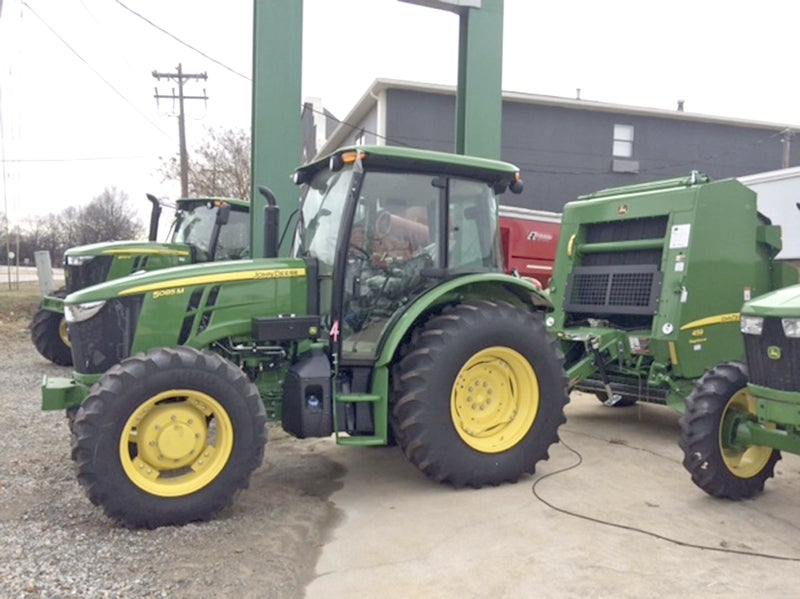Taxes are coming — learn how to make the best of it
Published 12:00 am Friday, December 23, 2016

- Submitted photo Farm equipment depreciates over time. Come to a Farm Tax workshop Jan. 18 to learn more.
By Amy-Lynn Albertson
Rowan County Extension Director
Benjamin Franklin once said “In this world nothing can be said to be certain except death and taxes.” Well it’s time to start thinking about your taxes again. After Christmas is the time of year when we get our shoebox of receipts out and start organizing for tax time.
Cooperative Extension and the North Carolina Farm School are sponsoring a “Farm Tax” workshop. This workshop is for farmers and other agribusiness owners. We will cover the ins and outs of filing your federal and state income taxes as a farm. A farm is described by the Internal Revenue Service (IRS) as a business that undertakes farming activities and produces income reportable on Schedule F (Form 1040), Profit or Loss from Farming. While taxes are never fun, here are ways to make April 15 less stressful for you and your farm business.
- Read the tax guide for farmers publication written by the IRS and Extension specialists. Publication 225 can be ordered or downloaded at irs.gov
- Find a great accountant, especially one who specializes in farming tax code. You can minimize the cost of an accountant by keeping detailed accurate financial records. Keeping complete and accurate records will help you not only support the information you report to the IRS, but assess business progress and make realistic plans. The reason for preparing a Schedule F (Form 1040) is to determine net farm profit for tax purposes, but a business income statement estimates returns to your labor, management and equity. Understanding the difference is crucial. There are many computer programs available like Quicken or Quick Books to help you keep records, but the key is to actually keep the records in the first place.
- Like most independent businesses, farms are allowed to reduce their current tax burden by spending money in this tax year on items (such as seed, feed and soil amendments) not intended for use until next year. To be valid, the payments must be made before Jan. 1 and meet other IRS requirements.
- Don’t go overboard trying to avoid paying taxes. Equipment should be bought because you need it, not for its tax deductibility.
- Depreciation is a means of recovering the investment in certain business property. Business property is depreciable if it has a useful economic life exceeding one year and wears out with use and/or becomes obsolete over time. Machinery, equipment, purchased breeding animals, barns, fencing, greenhouses and storage structures are common examples of depreciable property found on farms. Farmland isn’t depreciable since it doesn’t have a definite life, nor is a home because it is personal property.
- Remember to divide farm electricity, insurance and phone expenses from your home expenses since these can be deducted from farm income.
Generally speaking, the tax code provides a lot of benefits to farmers and other people who own their own businesses. The challenge is to learn how to take advantage of those benefits.
The NC Farm School “Farm Tax” workshop will go over how to report your income and business expenses for federal and state income taxes. In addition, we will discuss depreciation of agricultural assets, what qualifies, and how to calculate it. Sales Tax and the Present Use Value deferred property tax program will also be on the agenda. This workshop will better prepare you for the coming tax year.
NC Farm School “Farm Tax Workshop” is open to any farm or farm business operator. The cost is $20 per person (lunch included) on Wednesday, Jan. 18, 10 a.m.-2 p.m., Cooperative Extension, 2727 Old Concord Road, Salisbury. Please go to www.ncfarmschool.com to register or call 704-216-8970. Registration deadline is Jan. 16, 2017.



